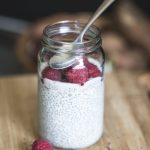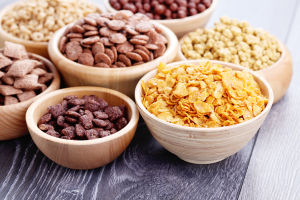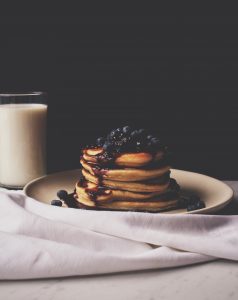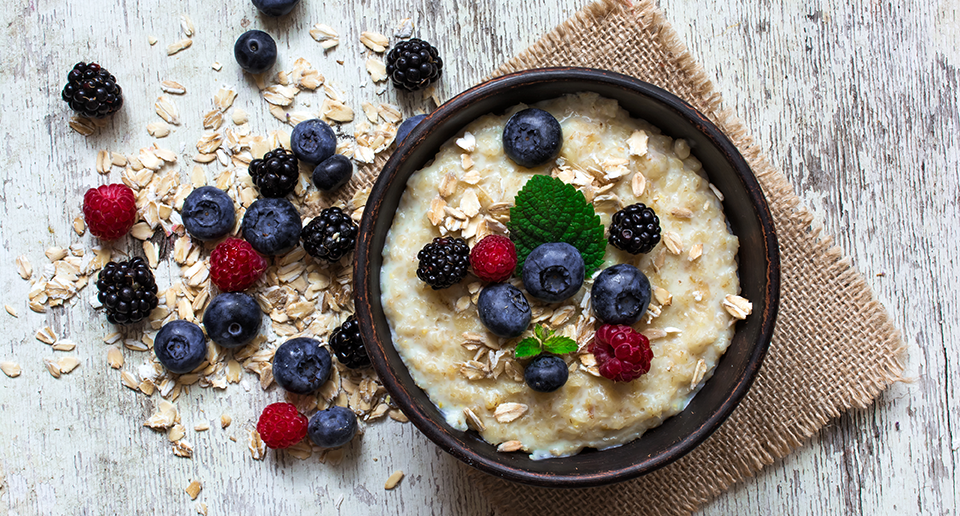
We have been led to believe over the years that we must never skip breakfast because it’s the most important meal of the day
This may seem like a simple question, but actually the answer is far from it. We have been led to believe over the years that we must never skip breakfast because it’s the most important meal of the day, but what, when and how we eat all play important roles in making or breaking this meal in terms of its impact on our health and wellbeing.
There’s much that is compromised about our modern take on breakfast. Firstly, it’s the meal most commonly bolted down in haste. We often eat it while standing in the kitchen, hurrying and worrying about others, or en route to our destination.
This rushed, un-mindful approach to eating leaves our digestive systems unable to properly focus on the task at hand, which increases the chances of bloating and indigestion afterwards, not to mention a reduced ability to absorb any goodness from the food we take in. It could be said that if we’re in too much of a rush in the mornings before we go out, it’s best to wait until we have time to sit and eat more calmly.
We have been led to believe over the years that we must never skip breakfast because it’s the most important meal of the day
Indeed a newer, popular form of intermittent fasting involves delaying breakfast in order to extend the overnight fasting window after dinner. Intermittent fasting has grown hugely in popularity thanks to its reported ability to help us shed weight and correct metabolic issues.
Delaying breakfast can be a user-friendly way to engage in this way of eating, because we don’t have to worry about calories taken in, just timings. Most try to extend the gap between dinner and breakfast to between 14 and 16 hours, and it’s advised you don’t dive right in and try this every day, just a few days per week initially. For stress bunnies, this may not be the right approach as it can push stress hormones up even higher, so get your stress sorted before you try it. But for others, this type of fasting can be a good way not only to lose some weight but also to give the digestive system a break at least until you are ready to eat in a more mindful manner.
What you eat in the morning is hugely important too when it comes to the question of whether breakfast is important or not. Over the decades, we have been successfully sucked into the marketing machine that tells us we must eat specific foods in the morning, namely boxed breakfast cereals, toast, pastries, yoghurts and fruit juice.

Cereal can include a substantial amount of sugar. Adults are not recommended to exceed 7tsp free sugars per day, which applies to any refined or natural sugars added to foods, plus fruit juice
People see breakfast foods as being quick and convenient but also a healthy choice thanks to the low calorie and low fat messages they convey. The reality is that most conventional, processed breakfast foods are largely devoid of nutrients, heavy in gut-irritating gluten, and contain plenty of starchy, processed carbohydrates.
Many include hidden sugars too, and often people take in more than their daily recommended amount of sugar just at breakfast time – adults are not recommended to exceed 7tsp free sugars per day, which applies to any refined or natural sugars added to foods, plus fruit juice. Many breakfast cereals contain several tsps of sugar per bowl, which when added to sugar in bread, jam, honey and fruit juice, means total sugar intake at breakfast alone may amount to 10-15 tsp or even more.
Taking in such large amounts of sugar at breakfast time can really upset blood sugar balance, leaving us crashing and reaching for the biscuit tin mid-morning, not to mention energy slumps, poor concentration, irritability, high insulin levels and the resultant deposition of body fat. It’s clear that when it comes to breakfast we need to re-think our approach and consider what our bodies actually need at this time of the day.
People often think it ‘weird’ to eat regular food – that is meat, fish and veggies – for breakfast. But really, we can eat anything we like. We need to un-learn what we’ve been taught about breakfast foods and simply see breakfast as just another meal in the day, giving ourselves the freedom to shun conventional thinking and start experimenting. By this I don’t mean eating different rubbish, on the contrary it’s a time to really pack in the nutrients and get the balance right, because what we eat has a lasting impact on how we feel for hours afterwards.
Taking in such large amounts of sugar at breakfast time can really upset blood sugar balance, leaving us crashing and reaching for the biscuit tin mid-morning
Our blood sugar sensitivity is different in the morning, meaning that we are less able to effectively use any sugars we take in compared to later in the day. So it’s even more important to ensure intake of quality protein, healthy fats, vitamins and minerals, and ease up on the starchy foods at this time of the day. Most people report better energy and concentration, and less mid-morning hunger when they adopt this approach.
What’s best to eat for breakfast?

Try some protein-rich pancakes to fill you up, they are so quick and easy to make
Of course we are all different, and so one size won’t fit all. And what you eat will also depend on what you’re doing that day. So if you have a busy day of activity planned, you may want to eat more in general and tailor your carbohydrate and protein intake accordingly.
But here are a few general tips to help you make the transition away from the beige, boring, processed foods so you can get the most out of breakfast and the day ahead.
| Our Breakfast Guide |
|---|
| If you’re very attached to breakfast foods, start slowly by changing just one breakfast a week, and go from there. And make the changes manageable – at first you could swap processed cereals for whole oats made into porridge or Bircher muesli with nuts, seeds and berries added, and swap regular toast with jam or honey for rye sourdough topped with almond or peanut butter. |
| Eggs are a fantastic breakfast food because they are quick, versatile and contain all the amino acids your body needs in the correct ratio, making them a complete protein. But take your eggs with nutrient-dense sides like avocado, peppers, tomatoes, asparagus and perhaps some bacon or smoked salmon too. |
| A full English is considered an unhealthy indulgence, but cooked with quality ingredients, and minus the fried bread and toast, it’s actually a good choice from time to time, because it contains plenty of protein to keep blood sugar balanced. |
| Try some protein-rich pancakes to fill you up, they are so quick and easy to make, then add some berries or stewed fruit with coconut or full fat yoghurt on the side. |
| Chia seed porridge has become popular, and can be prepped overnight so it’s ready to eat the next morning. |
| Smoothies can be a great start to the day when you’re in a rush, but watch you don’t add too many sweet fruits, dried fruits or any juice otherwise they may still upset your blood sugar balance. The key is to add healthy fats from avocado, coconut milk, nuts and seeds, along with some quality protein powder such as whey, pea or hemp, then add in some low-glycaemic fruits like berries or under-ripe bananas to add a little sweetness. Don’t gulp your smoothie down because when you drink your food, you effectively bypass the chewing process and this can lead to bloating later on. Chewing is a vital part of eating; it stimulates your digestive system to appropriately break down the food that is coming, so take your time with your smoothie – almost chewing it while in your mouth, to get your digestive juices flowing. |
| Leftovers are a life-saver – while this option might seem like a step too far at first, leftovers from dinner are a fantastic way to get a balanced breakfast when you’re short of time. As long as your evening meal was a healthy one – think a mix of protein, vegetables and slow releasing carbs – then it will translate into a sustaining breakfast the next day. Just reheat and you’re good to go. |
And wait if you need to – don’t feel you have to squeeze in your breakfast before you go out to work. Why not take it with you, and give yourself permission to stop and enjoy it a little later on at your leisure. Remember though, skipping it altogether and powering through to lunch is unlikely to be a good idea for most people, who need some fuel to gently raise blood sugar levels and replace nutrients after the extended period of fasting that naturally happens while we sleep.




